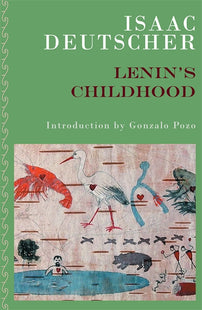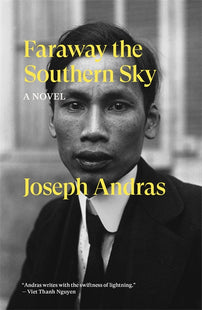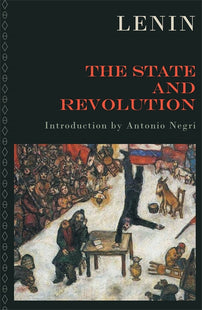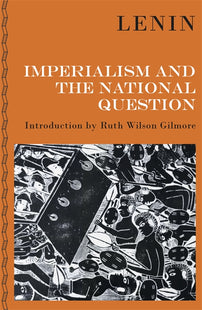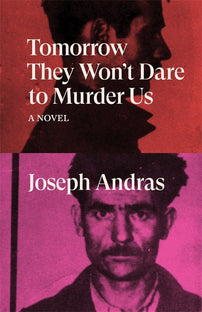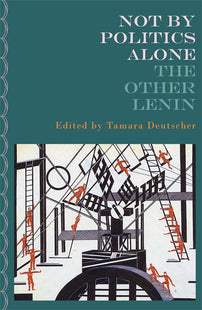The Novel of Lenin: Chapter Two
The second installment of our nine-part series: The Novel of Lenin by Joseph Andras.

Chapter Two
1885-1893: The Death of the Brother, Marxist Circles, Nicholas II Ascends to the Throne
Vladimir is an adolescent when his older brother Aleksandr is arrested by the Tsarist authorities, judged, and hung in a square with four of his comrades. The event will mark Lenin for life.
We are in 1886. Vladimir’s father dies of a cerebral hemorrhage, The child is now an adolescent, he is 16 and is reading Turgenev, the author of Fathers and Sons who has recently died not far from Paris. Vladimir sheds the cross that he had worn: if he still knows nothing of politics, he at least solves the question of all questions: life is lived on earth. His older brother, Aleksandr, has a few political ideas to work with. He joins what remains of Narodnaya Volya and, therein, its “terrorist faction,” which he directs ideologically. The Tsar is dead, his heir is next on the list. Aleksandr makes the bombs, but the imperial police arrest him before his group can act. In court, he assumes full responsibility: he is hung on May 8, 1887, in a square with 4 of his comrades. He watches their final breaths one by one. He is 21. He dies at Shlisselburg, some 30 kilometers East of Saint Petersburg. Anna, their sister, is placed under house arrest. Their mother sinks into despair.
“The hanging of his older brother deeply shook Lenin,” writes his biographer Jean-Jacques Marie in Lénine. Commentators have commented on this ad infinitum: should we detect in this tragedy the awakening of vengeance in a future Lenin? This is, in any case, the hypothesis of the Russian writer Lev Danilkin, who notes in his award-winning 2017 Lenin, Pantocrator of Solar Dust that Aleksandr’s execution “is without a doubt at the origin of the neuroses” of the Bolshevik to be. A psychologizing hypothesis, to be sure. 8 years after the death of the amateur regicide, Vladimir would have confided that “My elder brother traced my path.” We need to stick with the conditional tense. Only a few days after his brother’s death, the young man still passes his exams with great success. He is decorated in gold. He is a brilliant, cold, strict, and friendless student. You don’t talk with him for talk's sake.
In August, Vladimir leaves for Kazan to study law at the university. There, he is elected representative of a council. As the year comes to an end, he takes part in a modest rally against the ban on student clubs. He is arrested, accused of being the instigator, expelled from the establishment, and sent back to his mother and Anna in Kokushkino. That winter Vladimir hunts and skies; but above all he reads. In great quantities. Then he becomes bored. He pleads with the minister of public instruction to readmit him to the university: refusal. But the family is authorized to return to Kazan. Vladimir attends Marxist meetings and begins reading Capital. The first volume, at least, the only one translated at the time. It’s quite successful in Russia. Marx died, ill, 5 years prior; he rests in a cemetery in North London and his friend Engels writes, in the preface to the 1888 English edition of the Manifesto that “the history of these class struggles forms a series of evolutions in which, nowadays, a stage has been reached where the exploited and oppressed class – the proletariat – cannot attain its emancipation from the sway of the exploiting and ruling class – the bourgeoisie – without, at the same time, and once and for all, emancipating society at large from all exploitation.”
This growing interest in politics does not sit well with Vladimir’s mother. She would prefer him to be a farmer in the village of Alakaevka where she has acquired land; this will fail. During this period his old Marxist companions are arrested. Vladimir keeps reading. He reads Marx and Engels, as well as peasant stories. He gives courses in Latin and Russian, does sports, swims, and attends a Marxism discussion circle. His existence is ordered. Nothing sticks out. Thick-headed, disciplined. He again requests to resume his law studies, this time remotely, but once more in vain. His mother insists. This time it works. The beloved child leaves for Saint Petersburg in the summer of 1890. The following November he is named first in his class. A liberal lawyer soon hires him as an assistant.
Russia is struck with famine. Drought hangs over the land, the regime continues to export grain and peasants rush to the city. However, famine is out of the question: the press is told to stick to the formula: “poor harvests.” At first, the Tsar underestimates the disaster. The people eat raw flour and bad bread, hay destined for roofing goes back to the livestock. A charity plan is put into place, a princess donates 10,000 rubles, the State preaches to the peasantry, typhus and cholera strike. So thunders Tolstoy in a letter on the famine: “The population degenerates, the children die before their time, only that the wealthy gentlemen and merchants may be able to live their distinct lordly lives, with their palaces, dinners, concerts, horses, carriages, lectures, and so forth.”
Vladimir does not intend to participate in such charitable works: charity is not justice. But there is more, notes the historian Nicolas Werth, according to whom the tragedy would have satisfied him. Citing a certain Beliakov, himself cited by a certain Heller: “Vladimir Ilyich Ulyanov had the courage to come out and say openly that famine would have numerous positive results, particularly in the appearance of a new industrial proletariat, which would take over from the bourgeoisie […] Famine, he explained, in destroying the outdated peasant economy, would bring about the next stage more rapidly, and usher in socialism, the stage that necessarily followed capitalism. Famine would also destroy faith not only in the Tsar, but in God too." Around 400,000 deaths will be reported.
In 1893, Lenin, under two borrowed names, facilitates two Marxist circles. His lodgings are spartan, his interlocutors recognize his seriousness. The following year, he publicly opposes a populist militant: no, assuredly no, there are no germs of communism in Russia to lean on. Everything remains to be constructed and it is only by overcoming capitalism, born in these lands, that communism will be achieved. He will continue this struggle against populism in May 1894, in his third work: “What the ‘Friends of the People’ Are and How They Fight Against Social Democrats.” The former are populists; the latter, disciples of Marx, of which he is one. Vladimir, 24 years old, sets to methodically dismantle their “revolutionary” theories. And to do so, the young man admits to having to “wade through [the] filth.” His style is already fully deployed: cutting, mocking, brutal. One can almost hear his pen scratching the paper. It is urgent to convince the “educated representatives” of the working class of the pertinence of scientific–read Marxist–socialism, and, by international struggle, to march to the victory of communist revolution.
The year comes to an end; so does the Tsar. Alexander III’s battered kidneys get the better of him. Nicholas II succeeds him and in his turn, swears that nothing will ever shake autocracy. Vladimir writes his first tract, which he pastes on the walls of a striking factory.
This text was originally published by L’Humanité in a special edition commemorating the centenary of Lenin’s death. Translated from the French by Patrick Lyons.
Chapter One: 1870-1885: The Birth of Vladimir, the Assassination of Tsar Alexander II
[book-strip index="1"]
